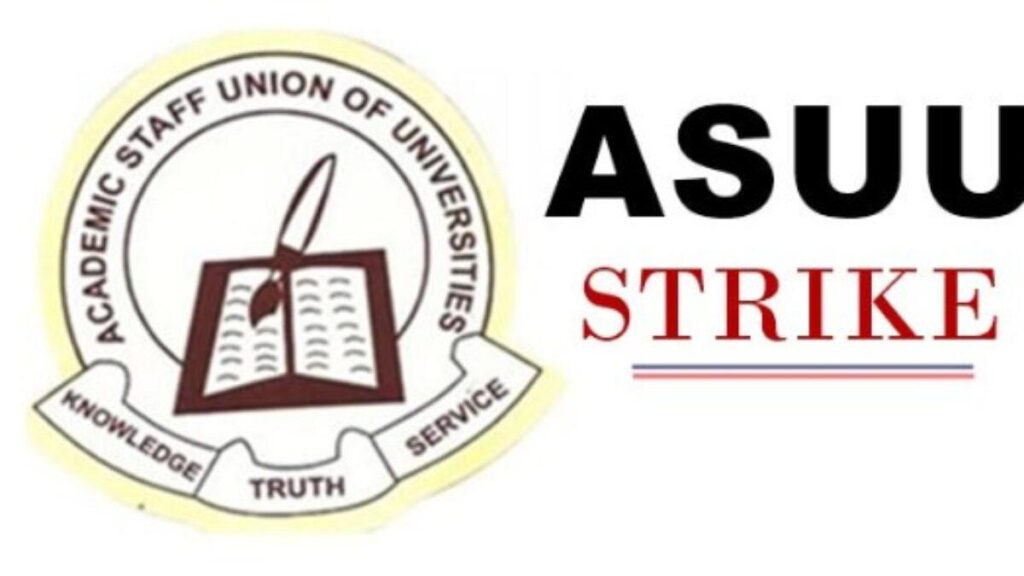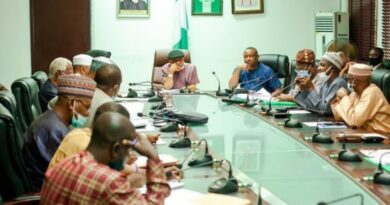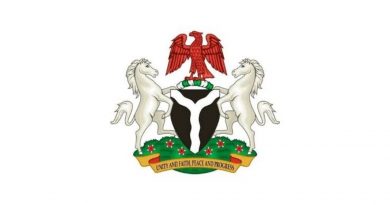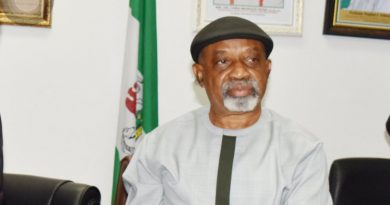The genesis of ASUU’s unending strike
By Jude Idu
Buried in self-pity, the ambition of graduates to secure a payable job, and help alleviate parents from the shackles of poverty seems to have been dashed, after spending six years with no graduation time in sight.
Uzoma Anenechukwu grew to see her mother toil as a small-scale farmer cultivating pumpkin leaves popularly known as Ugu to fend for the family. The father is a shoe cobbler with little income difficult to sustain a family of six.

Her university education became a reality through the assurance of an uncle. But this was short-lived after an attack by Boko Haram insurgents in Maiduguri, Borno State, claimed his chains of business. She wasted six years at the University of Abuja (UNIABUJA) pursuing a four-year course.
She lamented: “If I had chosen to learn a trade at Onitsha or Aba like my friends, I could have achieved something by now. I shouldn’t have lost both the money and the number of years with no hope of a certificate in sight. Can’t you see my predicament?
“I guess many Nigerian students who are from poor backgrounds feel so. It has become a good economic survival strategy in the South East that young men and women who learn a trade before attaining education, become millionaires quicker than those who possibly take the way of education.
“Yes, I am back in selling Ugu. It has been part of me, I was born by an Ugu seller and I am not regretting it. My regret is that I failed to learn the ingenuity of an average Igbo person who goes to Aba or Onitsha to learn a trade.”
She insisted the Federal Government and the Academic Staff Union of Universities (ASUU), are not sincere enough in resolving their crisis: “How can people who claim to be fighting for the development of education fail to realize that they are killing the thing they are about to save by allowing students waste their lives at home?
“Members of ASUU have also failed to realize that they owe Nigerian students parental care apart from being lecturers. One sometimes thinks that they are all fighting to feather their nest. The government on its side contributed hugely to complicating this matter, which originated in 1965 from the first-generation universities.
“When you chronicle the issue, you will see that no government has ever prioritized education in this country. We need a leader who places education ahead of other things. An uneducated nation is a poor nation.”
Nongo Wahzakah, an undergraduate of Benue State University, Makurdi, is angry with the Federal Government of Nigeria for trying to destroy ASUU: “What is happening today around Nigeria is as a result of unguided youths. How can undergraduates stay out of school for close to a year because of strike actions?
“Those destroying this country have their children study abroad. But they are also facing the insecurity problems, which they cultivated. While their children are through with learning, they too are enmeshed in the national insecurity problems.
“ASUU strike has contributed to insecurity problems in this country. Government and its warring partners should start thinking of what to do. What is coming next is going to be more than #EndSARS. Youths are not happy of not graduating after 10 years while their kids enjoy our commonwealth.”
Alhaji Ibrahim Jafar, is a postgraduate student, Department of History, University of Ibadan: “Government beginning from the military regime of General Buhari has not made the choice of taking education to greater heights.
“ASUU grew out of the Nigerian Association of University Teachers (NAUT), formed in 1965. It covered University of Ibadan, University of Nigeria, Nsukka, Ahmadu Bello University, Zaria, University of Ife and University of Lagos. The NAUTs orientation was mainly for improvement in the condition of service, the socio-economic and political wellbeing of the country.
“ASUU was formed in 1978, the beginning of the decline in oil boom. It was when the country faced the consequences of the failure by its rulers to use the oil wealth to generate production and a social welfare system. Academic freedom and university autonomy were casualties of military dictatorship.
“The funding of education became poorer. The factors required a changed orientation of the union of academics, from 1980. ASUU’s orientation became radical, more concerned with broad national issues and stood firmly against oppressive and undemocratic policies of the country.
“Throughout the military period, ASUU waged its struggles around the survival of the university system with three components which are, conditions of service, funding and university autonomy/academic freedom and defence of the right to education. ASUU’s struggles during the Buhari-Idiagbon regime were based on the union’s principled opposition to military dictatorship.”
Another postgraduate student, James Olubayo: “General Buhari’s major contribution to ASUU protracted crisis began in 1985, when his regime started a programme of retrenchment of workers and wages freeze.
“ASUU was central to the resistance to Buhari-Idiagbon regime’s termination of the cafeteria system and the withdrawal of subsidies on accommodation within the university environment. It also struggled against the regime’s authoritarian Decree 16 of 1985, which transferred to the National Universities Commission (NUC) the power of Senate to determine, regulate and monitor academic programmes. It took accreditation of academic programmes from professionals and transferred it to the NUC. It established uniform standards and called them minimum standards.
“With Professor Jibril Aminu as Minister of Education, the Federal Government banned ASUU, seized all its properties, made announcements directing all universities to immediately pay the EUSS, backdated to January, same year.
“ASUU responded by forming University Lecturers’ Association (ULA). But the proscription broke the back of the strike. Members returned to work.
“The period following the 1988 proscription was a period of deep demoralisation among academic staff. But the leadership continued to organise ULA on the campuses.
“By 1992, the situation of academic staff on the university campuses had become more intolerable. The drive to leave the universities for foreign countries and the private sector had become, for many, the solution to the decay in the universities and the demoralisation of university teachers.
“In 1990, ASUU was de-proscribed. In 1991, following the Delegates Conference in Badagry, ASUU asked the Babangida regime for negotiation.
“There were two rounds of negotiation. The first, under the chairmanship of Mr Senas Ukpanah, broke down when, following a disagreement on government’s offer on salary, the chairman unilaterally suspended negotiation on May 30, 1991.
This was followed by government announcement of a unilateral package.
“I can possibly tell you that the failure by the Federal Government during the process to negotiate seriously on the conditions in the universities led to the 1992 strike declared by NEC on May 14, 1992 and suspended after one week because of an IAP order for immediate suspension. Although the IAP ordered both sides to the negotiating table, government did not resume negotiation.
“ASUU resumed its strike on July 20, 1993. ASUU was banned for a second time on August 23, 1992. ASUU had the support of the public, the professional organizations, NANS, etc.
“When all the tactics to break the strike failed, government devised a way of negotiating with a banned union. This took place between the government team led by Owelle Chikelu, Minister of Establishment and Management Services, and representatives of Academic Staff of Nigerian Universities (ASNU).
“Then a civilian regime took over from General Abdulsalami. But the Obasanjo government had a different plan. It had a plan to repudiate the June 30, 2001 Agreement including cancellation of collective bargaining; introduction of fees; the $68 million loan and retrenchment. The aim was to bring back World Bank’s project called NUSIP. It was a re-introduction of the old World Bank $120 million loan.
“It is good we open some old wounds so that those who accuse ASUU of being insensitive should know where they channel their grievances. But that is not to say that ASUU does not have its own fundamental issues within its fold.
ASUU and its problems
Sources revealed that ASUU’s links with student organisations has weakened the struggle tremendously, as the student nuclear body NANS is now run from the Presidency.
One of the sources said: “Although ASUU’s relationship with NLC is good, the link between ASUU and Labour in the states is weak. Because of the constant renewal of the struggle against external obstacles to the realisation of ASUU’s goals, the process of self-cleansing within the union has been rather slow.
“The need to invigorate inward-looking therapeutic mechanism arises, out of the unions desire to maintain its principle and integrity. It is not aimed at improving on any sore image. Our business is to save education and Nigeria not cultivating images.
“Freeing a people and a country is not a task for image-makers. The need for self-directed cleansing within our ranks is justified simply by the truth. We cannot pursue our struggles and win them if we do not have self-confidence and discipline.
“ASUU’s struggles arise out of the necessity to build a country in which every citizen shall be free, educated, well-fed and healthy. The struggles usually call for sacrifice. These problems cannot be addressed without reminding us of how it all started.
“The Buhari administration should be able to look back and end what it started. It will go down in history that it all started under him as leader and remains insolvable.”
Toafik Babawale, a commercial cyclist and under graduate with UNIABUJA resolved that none of his children will study in any Nigerian university: “Many students are finding their ways out of this country. The reason is not far fetched. This is a country where graduates struggle for N50,000 job.
“Under graduates have no hope of date of graduating from school. How can you describe this kind of government, which at each time brainwashes the youth that Nigeria remains the best in Africa?
“The youth should rise to take over the country and start addressing issues that concern them squarely. From what is happening, do you think Buhari is ready to make members of ASUU go back to classroom?
“Before now, the ruling party promised heaven and earth to Nigerian youths. All the promises have gone with the winds. Nigeria is heading for another show down with youths. This time it will be do-or-die because this ASUU matter is affecting Nigerian.
“Most of their children study and graduate abroad including Buhari’s who promised to work against the trend all has become fallacy. What they do is to lie and gain their way to power and abandon the poor to die in abject poverty.
Credit: sunnewsonline








